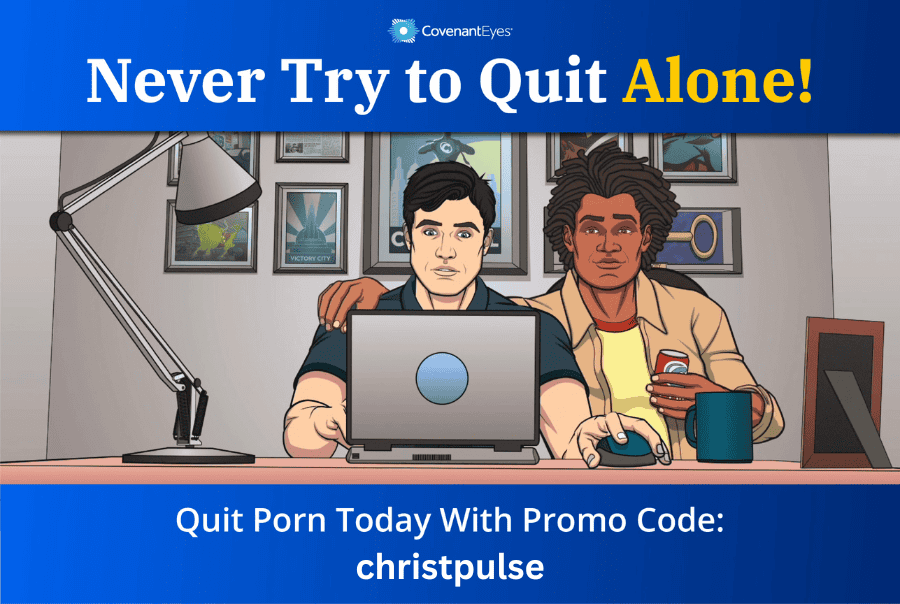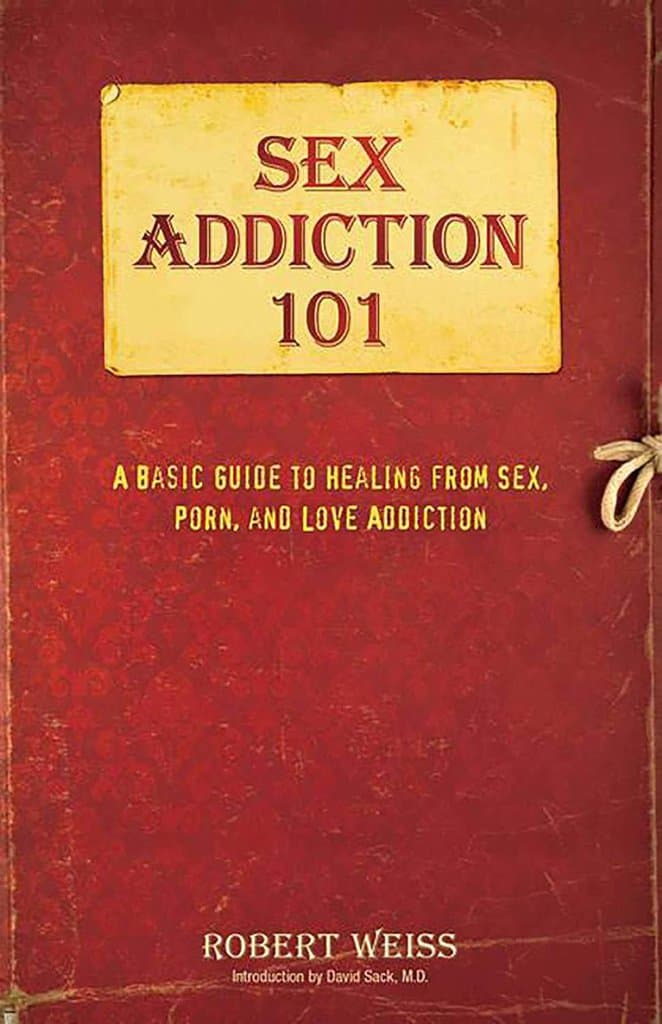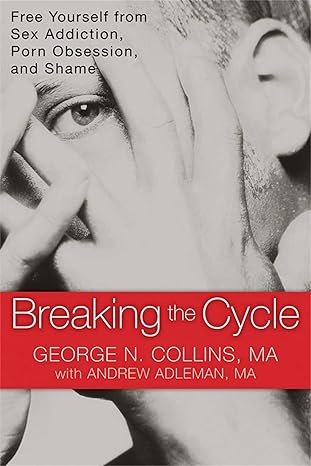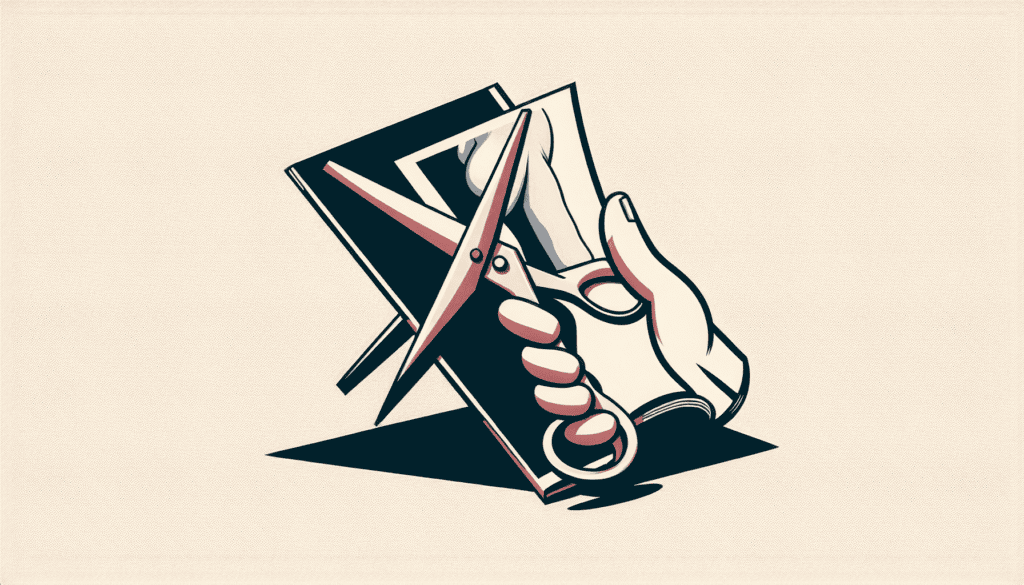Understanding Porn Addiction in a Religious Context
The Concept of Porn Addiction
Getting hooked on porn often messes with your heart, soul, and connections with others. Folks from religious backgrounds especially feel heavy guilt and shame when it comes to watching porn. Turns out, in studies, religious folks are more likely to say they’re addicted even though the big brains behind psychiatric labels like DSM-5 haven’t slapped an “official” sticker on porn addiction.
This battle with porn can twist you up emotionally and spiritually. It leaves people asking tough questions like is porn addiction a sin?. It’s like riding an emotional rollercoaster of shame, guilt, and looking for a way to make things right again.
Views of Different Religious Institutions
Different religious groups have their own takes on porn addiction and the moral hullabaloo around it. The Catholic Church thinks the whole point of porn is to stir up lust, calling it out as sinful business.
Just like them, the Evangelical Church in Germany gives porn two thumbs down, saying it’s not what God had in mind for this world. Mainstream and evangelical Protestants echo this stance, usually showing no mercy towards it.
The LDS Church, on their end, compares porn’s impact on the spirit to that of smoking or drinking on the body. They push for resisting its pull and fight against its spread.
Grasping these religious views is a big deal for Christians caught in the cycle of porn addiction. It can help them sort through the maze of shame and guilt while searching for a way to rise above it. Tapping into faith-based resources—like how can faith help me overcome porn addiction? and can prayer help me quit porn addiction?—could be their ticket to healing and a supportive community.
Impact of Porn Addiction on the Brain
Grasping how porn addiction tweaks the brain can help folks reconcile their battles with their Christian beliefs. Let’s break down how brain bits change and what that does to behaviors and thoughts when you’re glued to porn.
Changes in Brain Structure
Turns out, getting hooked on porn can seriously mess with brain structure. Studies using MRI scans found that the more time you binge on porn, the less grey matter your brain’s packing, hitting the areas dealing with rewards and emotions (MentalHealth.com).
Overdoing the porn rewires your brain’s pleasure center, throwing off the loop that usually boosts good habits. This shift can make once-fun things feel meh, feeding into the addiction cycle.
| Brain Structure | Impact |
|---|---|
| Grey Matter Volume | Shrinks with more porn time |
| Reward Center Changes | Less buzz from natural joys |
| Prefrontal Cortex | Messy emotions, poor impulse control |
Behavioral and Cognitive Effects
The brain bits aren’t the end-all. Porn addiction reshuffles how you think, decide, and relate to others. Heavy porn users often show behaviors like seeing people as objects, acting compulsively, and taking stupid risks.
Getting into porn young can stunt sexual growth and muddle emotional and psychological progress (MentalHealth.com). This means folks might struggle as their minds and actions bend toward a porn-heavy life.
| Behavioral Change | Description |
|---|---|
| Objectification | Seeing others without warmth |
| Compulsivity | Can’t hold back urges |
| Risk-Taking | Leaning towards bad decisions |
Spotting how these issues crop up is key for Christians battling porn habits. It helps them see how their faith might gear them up for recovery. Curious about leaning on faith for help? Check out our piece on how can faith help me overcome porn addiction?.
Psychological Factors of Porn Addiction
Grasping the mental side of porn addiction is key for people tangled in its web. Here, we’ll dig into how porn addiction can mess with your head and stir up emotional and spiritual chaos.
Psychological Impairment
Loads of research have shown that being hooked on porn can really mess with your mind and social life. There’s proof linking porn addiction to increased anxiety, emotional turmoil and a drop in family closeness.
| Impairment Type | What’s Going On |
|---|---|
| General Anxiety | Worries and fears running high |
| Psychological Distress | Feeling kind of hopeless and down |
| Emotional Bonding | Feeling more distant from loved ones |
These challenges can make it tough for someone to build real connections and enjoy life. It often spirals, with more porn use leading to more distress, causing further withdrawal from social engagement.
Emotional and Spiritual Distress
Those caught in compulsive sexual habits face amped-up emotional pain no matter what they believe in spiritually. Research shows these individuals are more likely to suffer emotionally and spiritually compared to others who aren’t embroiled in such habits.
Interestingly enough, folks without a religious background report more anxiety and stress than those with faith, suggesting that belief might offer a little buffer against the harmful effects of porn addiction.
Using porn doesn’t line up with what many faiths say about life’s purpose; it can harm spousal bonds and bring about shame and guilt. Going down the path of sexual sin often feels like straying from spiritual teachings. The advice from Biblical writings is to steer away from sexual misdeeds and lean into values like faith, love, and peace.
Getting back on track typically means facing up to these mental and emotional struggles and seeking faith-based support. Recognizing the importance of repentance and aligning oneself with spiritual truths are empowering steps toward healing.
For a deeper look at how faith can steer you away from porn addiction, check out our article on how faith can aid in overcoming porn addiction. Also, dealing with those nagging guilts and shames is crucial; our piece on handling guilt and shame from a faith perspective can offer some insight.
Overcoming Porn Addiction
Psychological Treatment Approaches
Kicking porn addiction to the curb isn’t a walk in the park, but with the right tools, it’s something that can be tackled head-on. Think of it like fixing a leaky roof; you find the main issue and fix it while addressing all the small drips, too. Therapies like Cognitive Behavioral Therapy (CBT), psycho-education, and good ol’ counseling are like those trustworthy toolkits.
| Treatment Approach | Description |
|---|---|
| Cognitive Behavioral Therapy (CBT) | Aims to fix those pesky thought patterns linked to your porn use. |
| Psycho-education | Teaches you why porn addiction is damaging and what healthy sexual behavior looks like. |
| Counseling | A safe space to unpack feelings and past traumas that add fuel to the addiction fire. |
| Distraction Techniques | Find new hobbies or activities to divert your mind when the cravings kick in. |
| Pharmacological Therapy | When your doctor believes it’s right, certain meds might help manage those nagging urges. |
Mixing these approaches can help you reclaim your control and get your life back on track.
Integration of Faith in Recovery
For folks with a Christian background, faith can be a powerhouse in breaking free from porn addiction. It’s about owning up to the problem and setting out in a fresh direction. Kind of like turning off one road and heading down another, you start thinking and acting in a way loved by God – that’s a game-changer right there.
Turning to spiritual practices offers emotional relief. Dive into prayer, soak up scripture, or simply show up for community gatherings; there’s strength in these acts. When the going gets tough, faith is like a flashlight in the dark, guiding the way.
While standard therapies tackle the mind, don’t discount the soul side of things. Blending these with faith-based approaches gives a fuller shot at cleaving to recovery, digging out those entrenched issues, and fostering a healing that lasts. When guilt and shame try to weigh you down, learning to manage them through faith provides fresh hope.
For deeper insights, check out our article on how faith can bolster pornography recovery. If you’re wrestling with guilt and shame from a faith perspective, we’ve got advice there too in our piece on managing guilt through faith.
Cultural and Societal Influence on Porn Addiction
Consumerist Society Influence
Living in a buy-this, buy-that world, we often see addiction to porn get the thumbs-up as normal. When we’re bombarded with things to grab our attention every day, it’s no wonder some folks start seeing others as just objects. Porn turns people into lifeless cutouts, missing the richness of real emotions and connections. This way of thinking messes with how we look at love and intimacy.
Since 2016, states across the U.S. began waking up to the real problems porn brings—think addiction, cheating, and even exploitation (Seattle Anxiety Specialists). The impact isn’t just personal—it’s seeped across society, messing with how we handle relationships.
Distorted Relationships and Intimacy
Porn addiction shakes up how people think about love and closeness. Folks caught in this habit struggle to genuinely bond with partners because they’ve developed whacked-out ideas of what intimacy should look like based on porno fantasies.
Studies say if one partner’s cool with porn and the other’s not, you’re in for some bumpy roads. For example, someone down with their partner’s porn habits might say they’re living the dream more often than not, while the opposite tends to lead to less happiness in the bedroom. These flicks shape personal interactions, bringing society’s views on porn into our homes (Seattle Anxiety Specialists).
Grasping how culture and society feed porn addiction is important to getting a grip on it. Kicking these habits means seeing the bigger picture and challenging the view of people as consumable items. Check out our piece on how can faith help me overcome porn addiction? for some extra tips on recovery.
Addressing the Stigma Around Porn Addiction
Public Health Concerns
Let’s talk brass tacks: the buzz about porn addiction is not just hearsay but a serious health concern these days. Since back in 2016, a bunch of states have stepped up, waving red flags by declaring pornography as a public health emergency.
The dirt this declaration dishes out includes infidelity, addiction woes, and sex trafficking ties. All of this paints a grim picture of the psychological and behavioral fallout from heavy screen time.
Flip through the research, and you’ll find some pretty unsettling stuff. Porn exposure seems linked to messy issues like hating your own body, stirring up eating disorders, and snapping into aggressive behaviors, especially among teenagers. Some studies even show a sketchy connection between porn habits and teenage dating violence, affecting the guys more than the gals.
| Public Health Concerns | Impact |
|---|---|
| Infidelity | More spats and trust issues |
| Addiction | Can’t stop, won’t stop behaviors |
| Sex Trafficking | More ethical red flags |
| Body Image Dissatisfaction | Busted self-esteem |
| Eating Disorder Symptoms | Anxiety parties and the blues |
| Teen Dating Violence | Boys getting rougher |
Psychological and Behavioral Consequences
Porn addiction’s reach is like bad Wi-Fi – it extends beyond one person. It messes with relationships and social circles too. Imagine trying to enjoy a meal but the soup’s always cold; that’s what porn does to life quality for some users. It’s like throwing shades at how relationships should feel and messing with those warm, fuzzy feelings of love.
If couples don’t see eye to eye on porn, that’s a recipe for misunderstandings about satisfaction and cheating. Those watching more porn usually find their love life dropping the ball. Oddly enough, guys who are okay with porn might be the ones reporting they’re happy as clams in their relationships (Seattle Anxiety Specialists).
Then there’s the baggage of shame and guilt porn addicts lug around, making it tough to bounce back. For folks of faith, tapping into resources discussing what the Bible says about lust and addiction can hit home. Plus, chewing over how faith can help overcome porn addiction might light the way out.
Breaking down the stigma around porn addiction is key—it’s like giving folks permission to speak up. These chats not only help people seek out some solid help, but also get to grips with their addictions, and hopefully, take a step towards healing.








![Your Brain on Porn [Book Review]](https://christpulse.com/wp-content/uploads/2024/09/611TBbtqJYL._SL1360_-663x1024.jpg)




